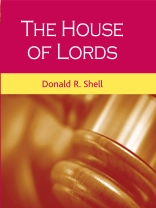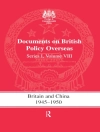The House of Lords has undergone significant change in recent years. The exclusion of the great majority of the hereditary peers in 1999 was intended as the first step in a two-stage reform process. But further reform has proved difficult to achieve and remains a matter of considerable controversy. Meanwhile, the present House has become more assertive, and is now widely recognised as making a substantial contribution to the overall work of parliament.
This book, available in paperback for the first time, examines the role of the contemporary House. Who are the peers, and who among the total of over 700 are the active peers? How does the House work, and how effective is it in revising legislation and in scrutinising the work of government? Why has fundamental reform of the House been so long delayed, and what are the main arguments about reform today?
These are among the questions discussed in this timely volume, which seeks to locate discussion about the House of Lords in the wider context of a clear understanding of the developing British constitution.
This book will be of great value to students and academics in British politics, as well as to serious journalists and researchers.
Table des matières
List of tables
1. The House of Lords and the British constitution
2. The House of Lords in the twentieth century
3. What is the House of Lords?
4. The work of the House of Lords
5. Second chambers elsewhere
6. Reforming the second chamber
Appendix: Party manifesto statements on the House of Lords 1979-2005
Sources and select bibliography
Index
A propos de l’auteur
Donald Shell is Senior Lecturer in Politics at the University of Bristol












